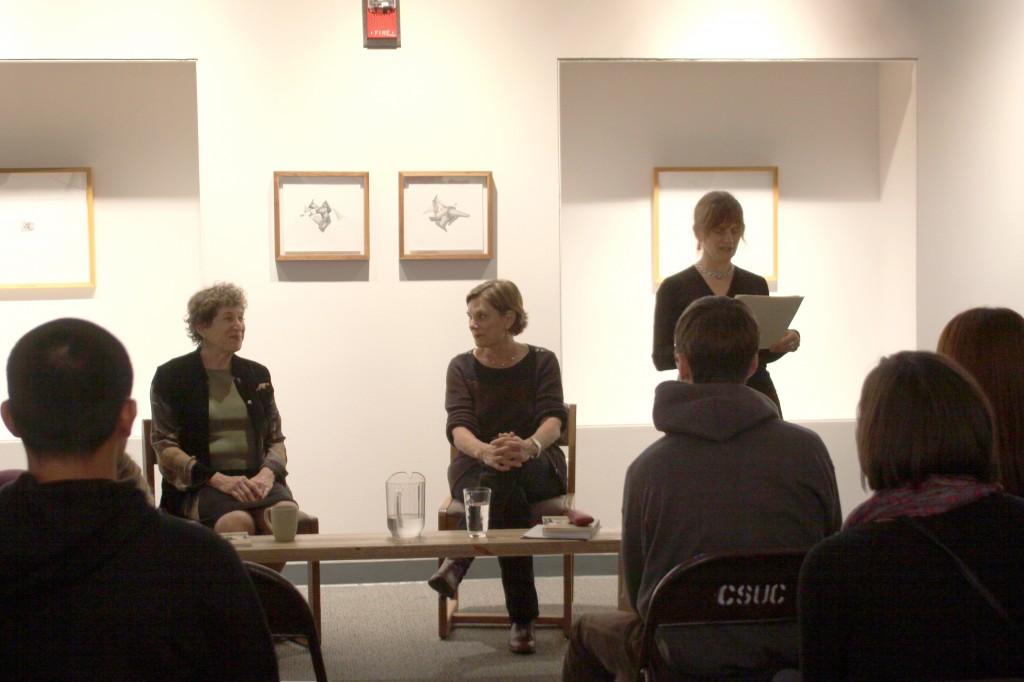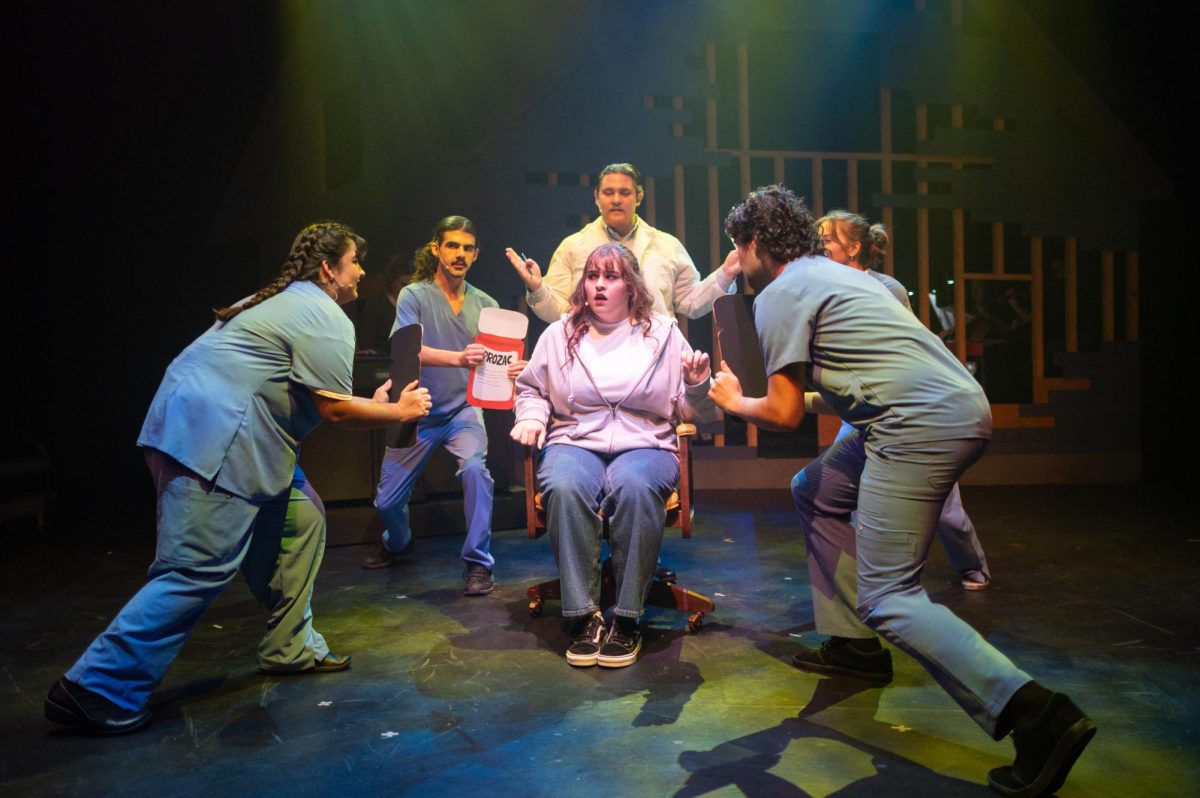
Meryl Natchez describes her first encounter with the works of Russian poets Anna Akhmatova, Nikolay Gumilev and Polish poet Osip Mandelstam as exciting.
Natchez presented her recently published collection of translations of these poets, “Poems from the Stray Dog Cafe,” on Wednesday at a reading in Trinity Hall 100.
The poems seemed so alive and spoke to her on such a deep level that she felt she had to translate them into English, she said.
Before she encountered these poems she hadn’t had any
previous inclination to work on translation, she said. The power of
the poems themselves really reached out to her, and she really wanted to
render them in English.
She really enjoys
translating because it’s a great way to be creative if she doesn’t
happen to have an original idea at the time, she said.
Natchez was accompanied by Kate Transchel, a history professor who presented her knowledge on the historical time frame in which these poets wrote their most significant work.
Akhmatova, Mandelstam and Gumilev were three passionate bohemian poets who inspired a poetic movement in Russia during the turbulent early 1900s. It was a time when Stalin had complete power and anyone who spoke against him would be accused as an enemy of the people and punished severely, even executed, Transchel said.
These three poets made the ultimate sacrifice for the sake of art and each of them suffered for it.
Natchez found their work so moving that she wanted to translate it to English.
Natchez read a small selection of translated poems from each artist.
She read a few poems by Akhmatova, which expressed the young woman’s thoughts and feelings about love and life. Her poems included sweet, natural imagery and had a dreamy tone.
Natchez also read one of Gumilev’s poems about his travels in Africa.
She read a very important poem by Mandelstam, both in Russian and the English translation, in which he expressed deep contempt for Stalin, comparing him to a cockroach.
This poem ultimately got him killed for treason. It is often referred to as “a death sentence in 16 lines.”
This poem was so dangerous that he couldn’t write it down, but he recited it to some friends at a small gathering, she said.
One of those people exposed Mandelstam. He was exiled and died while being transported to a prison camp in Siberia.
The other two poets met unfortunate punishments as well. Gumilev was shot for treason. Akhmatova was forced to write poems in praise of Stalin in order to save her son, who was also arrested and imprisoned.
The reading had a very intimate feel.
Audience members asked Natchez and Transchel many questions about the poems, the writers and what life was like in that time in Russia. The conversation was eye-opening to what life was like and how risky it was to be a poet in Russia at that time.
Malissa Pierce, a junior English education major, said it was really interesting to see what life was like when their voices weren’t heard back then.
“I’ve always been interested in Russian culture, and also being an English major, it was really interesting to see poems from Russia that were banned and made it to the West,” Pierce said.
Teri Snow, a senior English education major, enjoyed hearing from a different culture — what they wrote about and their experiences and how that influenced their work.
“It was neat to hear from other professional writers besides the ones we’ve studied in our courses,” Snow said.
Natchez continues to write original poetry and translations.
Sarah Scharf can be reached at [email protected] or @theorion_news on Twitter








